In the heart of the Amazon forest, a determined group faced off with a legendary creature. When they finally encountered the massive Anaconda, it was a battle of strength and resilience. The creature, tightly coiled around tree branches, resisted their attempts to bring it aboard their boat. This gripping scene was just one of the many extraordinary moments captured by Phan Thanh Quoc, a 32-year-old Vietnamese traveler.
No one imagined that a Vietnamese man in his early thirties would produce 150 professional and vivid video clips like “Chasing the Sea Monster in the Amazon Forest,” “Alone in Terrorist Territory,” “Meeting the Clay Tribe in Africa,” and “Surviving in the Desert.”
Many viewers of Phan Thanh Quoc’s YouTube channel were surprised and asked: “Why does such a quality channel only have just over 500,000 followers?” In response, Quoc said: “I go to experience and enjoy, not to create content. There are times when I only release one video every three months.”
50 countries – 10 years of traveling
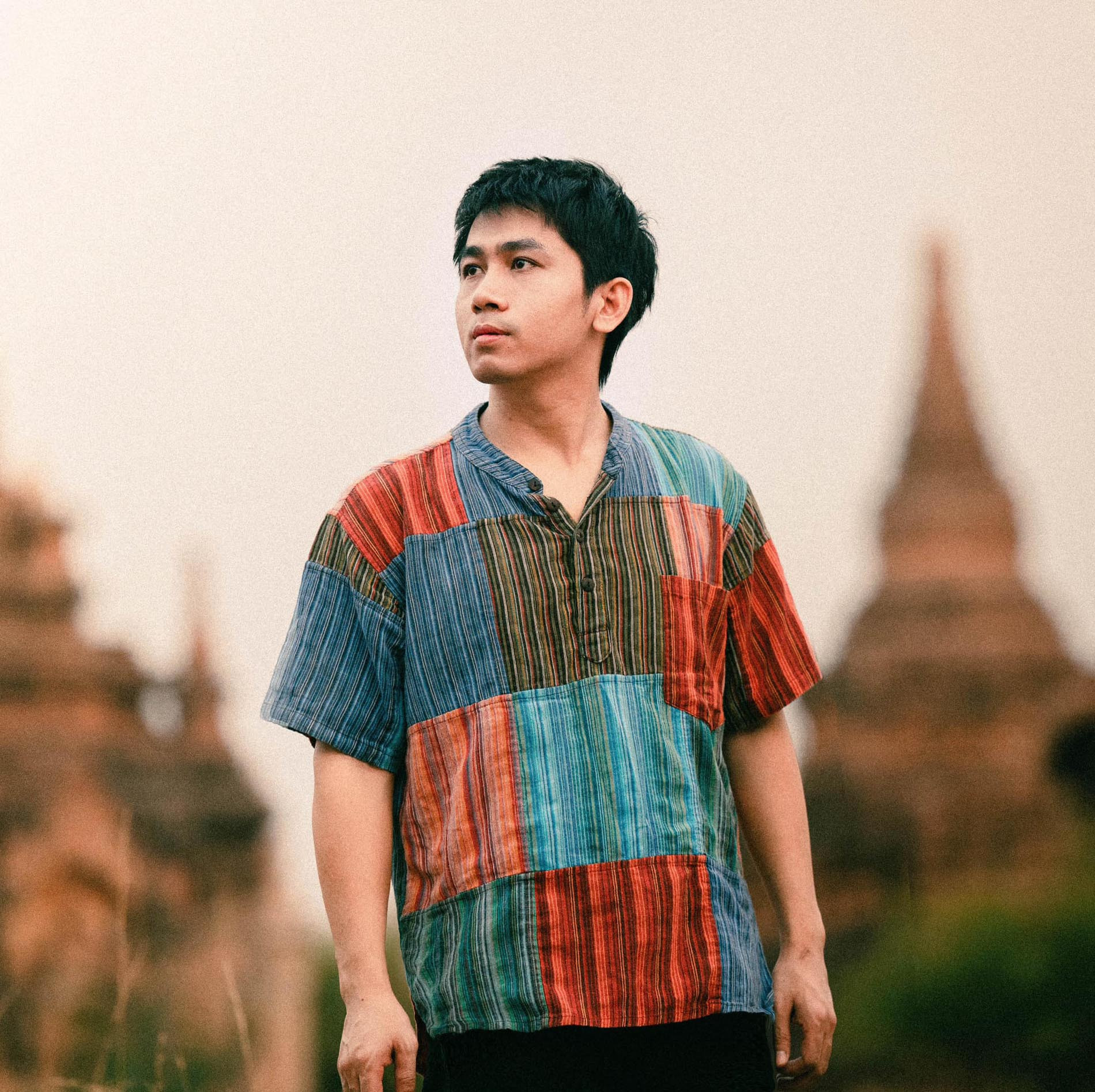
To date, after about 10 years, Quoc has set foot in around 50 countries worldwide, from famous lands to remote, lesser-known places. Watching his videos, many people commented that “it’s no different from watching foreign experiential TV shows.” The difference is that instead of a large and professional team, Quoc has been alone – traveling, filming, and editing by himself.
“There are times when I only post one video every three months,” he said. It’s not that there’s no content to post, but it’s true to his concept – “I travel to experience, not to make videos.” He also adheres to his principles – not to follow trends, not to chase views. Perhaps that’s why Quoc’s channel progresses slowly, very slowly, just like his traveling pace.
“There are people who have traveled the same amount of time as me, but they have visited twice as many countries. I don’t travel to count the number, so that doesn’t matter. I’m willing to stay in one place for a few weeks or even a month if I feel interested. I don’t have a specific plan for how many days I’ll stay in this country or that country.”
Quoc, from Quang Ngai province, confidently affirms that he is one of the first Vietnamese people to truly embrace experiential travel. However, it is only in the past two years that he has shared his experiences on social media.
“More than 10 years ago, when I had just graduated from college and earned some money, I started taking my first trips. I still remember there was a time when I had 2,000 USD in my hand, traveled for two months, ran out of money, and had to go back to earn more.
After graduating, I often traveled during holidays or alternated between periods of ‘job hopping’ from one company to another. It’s only in the past two years that I quit my job to work online. Currently, I have temporarily stopped working as a programmer to create content for my YouTube channel.”
The more he travels, the more he realizes the value of life comes from very simple things. “Why are there people deep in the jungle who own very little but are always happy? They can walk and sing like children, even though they are 50-60 years old. As for us, modern, developed society still does not make us happy.”
While exploring the Amazon, Quoc met a primitive tribe – gentle and friendly people. “They said they just want to live simply in the forest like their ancestors, the way they have always lived. They do not need someone to teach them a more ‘civilized’ or ‘modern’ way of life.”
In the desert of Western India, an illiterate man who worked as a tourist guide kept telling Quoc: “Don’t worry! You will be happy!” – a sentence that Quoc still remembers to this day.
Everest, Amazon, Middle East, Africa…

Quoc’s most terrifying “near-death” experience was climbing to the base camp of the world’s highest mountain, Everest. If it were summer, the climb would not be too difficult. But because he had planned to climb another time in the summer, he signed up to conquer Everest in the winter.
“There are almost no climbers in the winter. Of the 10 stations, only one is open.”
Initially, Quoc went with an American friend, but they agreed to go independently. After many days of being sick and mentally disoriented, Quoc got lost and suffered from a lack of oxygen. “I lost my way and imagined a village ahead. At that time, I struggled to crawl 10 meters. I had just sent my American friend my location when my phone ran out of battery. I didn’t know if the message had been sent. Among the snowy mountains, I was just a small dot. I thought, ‘Is my life going to end here?’”
Fortunately, the GPS message reached its destination. He was found in a state where he had no chance of survival.
“At that time, my desire to live was still very strong. Instead of stopping, I tried to climb a little higher to look down, trying to determine the direction… After accidents like this, I have more experience to avoid similar situations.”
Another time in Mongolia, instead of taking a check-in photo and leaving, Quoc stayed for 10 days, living with the locals. Unfortunately, while riding a horse, he was dragged on the ground with his leg still stuck in the saddle. “That was also one of my memorable experiences.”
Quoc shared that when entering areas with dangerous crimes and political instability, he has his own approaches to protect his life. “I never carry weapons because that will make it difficult for me to enter the country when crossing the border. Additionally, if something happens, I’m not sure I would dare to use weapons to fight back.”
Traveling extensively has also taught Quoc not to judge a person by their appearance. “Now, when I encounter something, I find it simple because I have experienced more complicated things.”
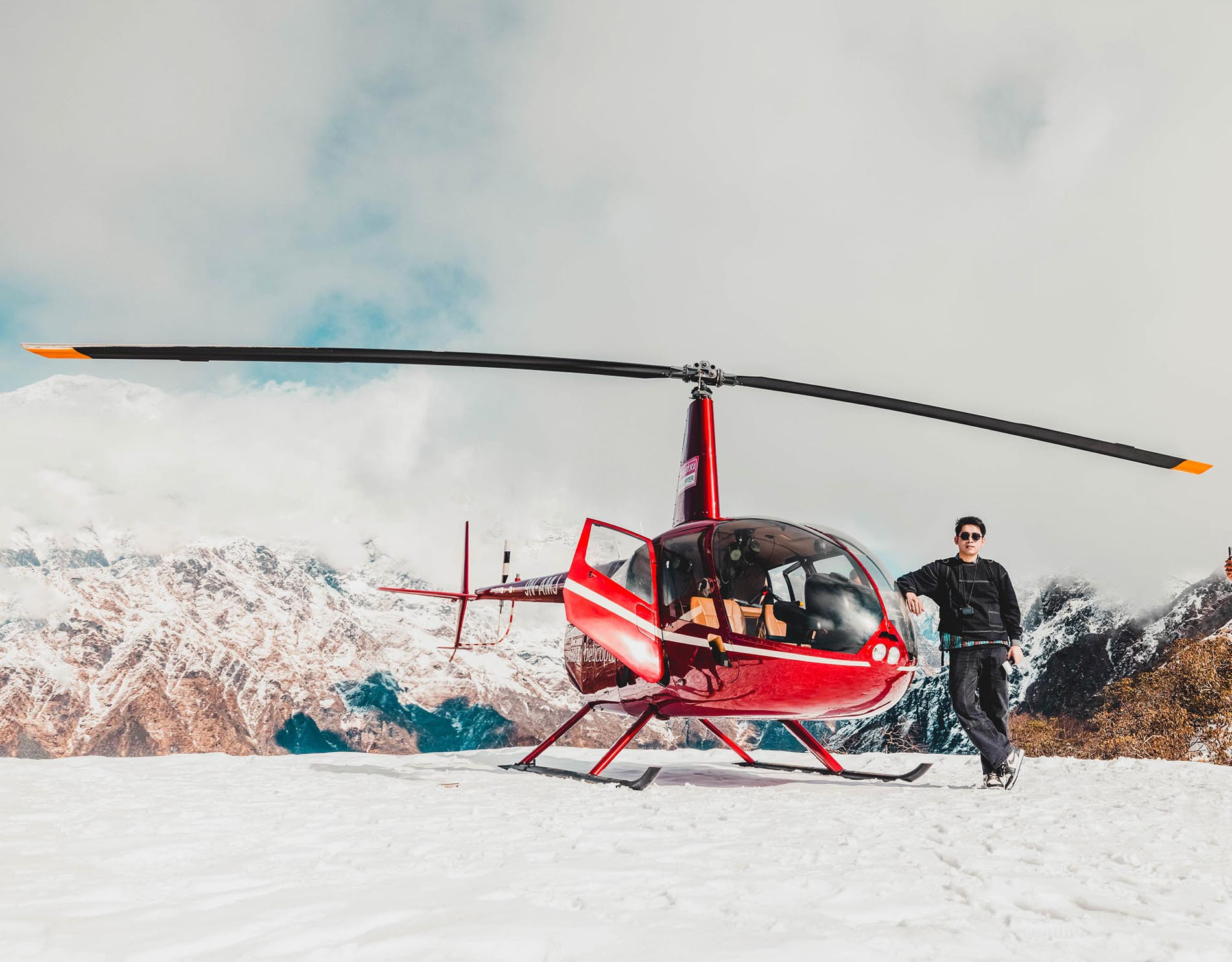
Enjoying and appreciating the lifestyle of simple people in the Amazon forest, the desert, or an oasis is fulfilling, but Quoc confided: “Staying for a few weeks or a few months is okay, but staying longer is probably very difficult for people from a modern society like us.”
In the Himalayas, Nepalese people live in a situation where they only bathe once every two to three months because there is no water available. “I stayed with them and didn’t shower for two weeks, but because the weather was -20 to -10 degrees Celsius, I didn’t feel too uncomfortable.
“Even using a wet towel to wipe was not possible, because it would freeze immediately. Human waste in the toilet was also frozen. I don’t know how they handled it, I think I’ll have to stay longer to find out. And of course, in that situation, there would be no water to do things like brushing teeth or washing face.
In Mongolia, people live on the steppe. Water is mainly used for cooking. Brushing teeth and washing face must be much more limited. Not to mention, horse manure is scattered everywhere. From the ground to the blankets and pillows, all are covered in horse manure.”
In Quoc’s eyes, African people are very friendly. But wherever he goes, he is looked at like an “alien.” People crowd around him, making him feel “a bit pressured.” “They just find it strange, or they like me and surround me. Sometimes they even ask for money.” Africa is also where Quoc has many unique experiences such as visiting the house of the woman who has given birth to the most children in the world, shopping in the poorest country in the world, meeting a tribe of dwarfs, and hunting Gorillas in the deep forest.

Regarding the experience of hunting the giant Anaconda in the Amazon forest, Quoc said it was an unforgettable memory and one of the most-watched videos on his YouTube channel.
“For three days, we pulled the boat into very remote lakes to look for Anaconda. Each lake was an hour away by boat. If there was no Anaconda in one lake, the next day, the locals and I would go to another lake further away. The locals said they had seen Anaconda in those areas.”
“Anaconda is a type of python that lives both underwater and can come ashore to sleep and sunbathe. On the fourth day, we found the Amazonian monster by chance in the rushing river. Seeing and touching an animal that is extremely famous in movies and science programs was a special experience in my round-the-world trip.”
When they found the Anaconda, the group wanted to bring it onto the boat to observe it more closely. But the monster was very strong, wrapping itself tightly around the tree branches. The locals had to cut all the branches away, but the Anaconda escaped and quickly disappeared under the water. Quoc said that finding the Anaconda was also to satisfy his desire to perfect his understanding of the special things in this world.
Where did the money come from to travel?
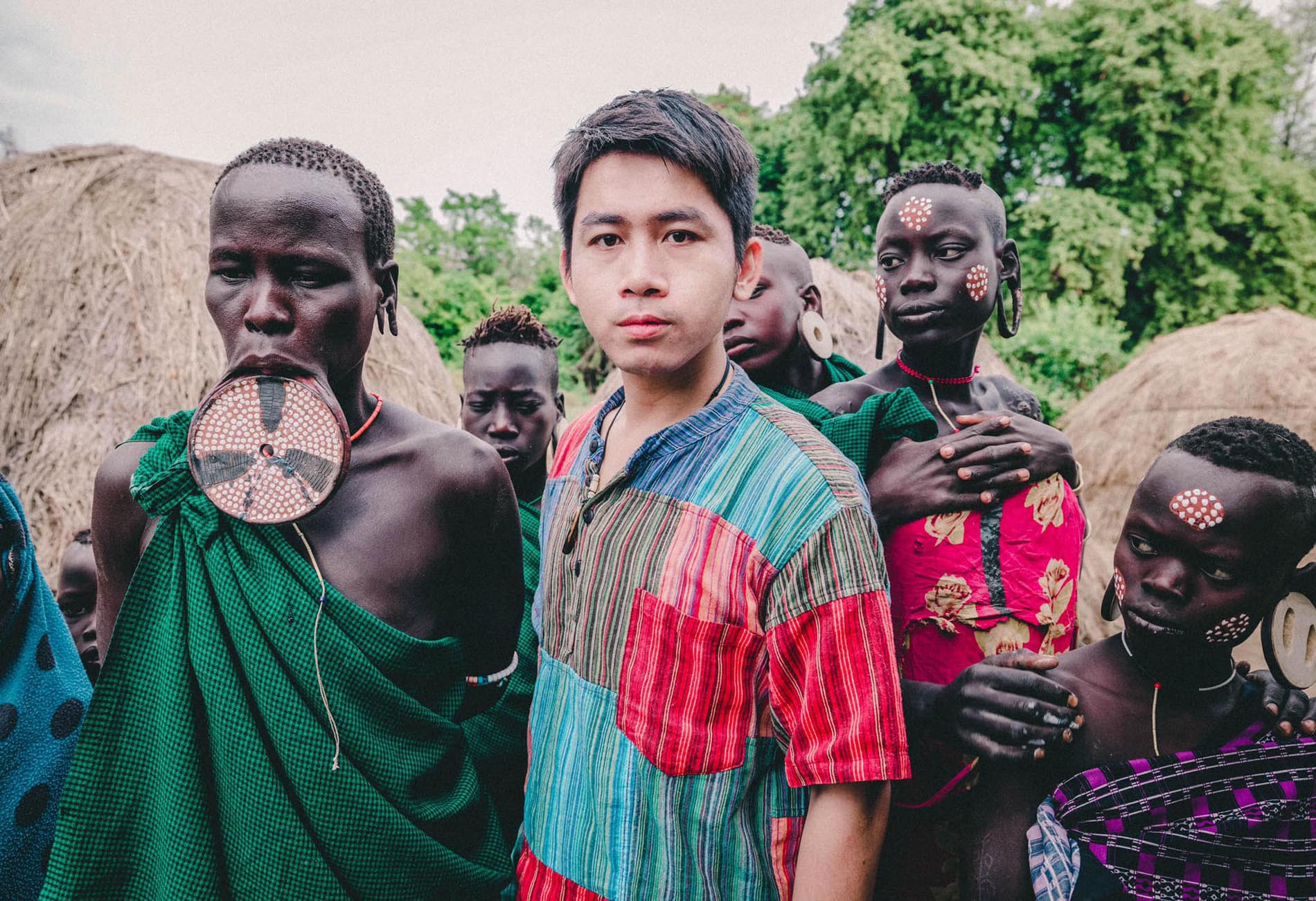
Born in 1992, spending a lot of time traveling around the world, Quoc was predicted by many to be a "rich kid," "born at the finish line." But the truth was completely different.
Quoc was born into a poor working-class family in a mountainous district of Quang Ngai province - where there are more mountains than flat land, where the Kinh people are fewer than the ethnic minorities.
Quoc studied at a village school. Later, when his parents transferred him to a school in the city to study, Quoc was just an average student in his class.
However, his talent and passion for information technology were revealed during his junior high school years when Quoc was still studying in his hometown. “I had to go all the way to the district post office to use a free desktop computer. Waiting for my turn took several hours. The internet was slow, and it took me a minute to access the website. I asked the teacher at the continuing education center to let me learn Microsoft Office… Just like that, I was able to create a website since my junior high school years.”
Quoc’s English during his high school years, even when he went to university, was still poor. Quoc only got 500 points on the TOEIC test on his eighth attempt. So much so that later, a friend teased: “If Quoc can learn English, there is nothing he can’t do.”
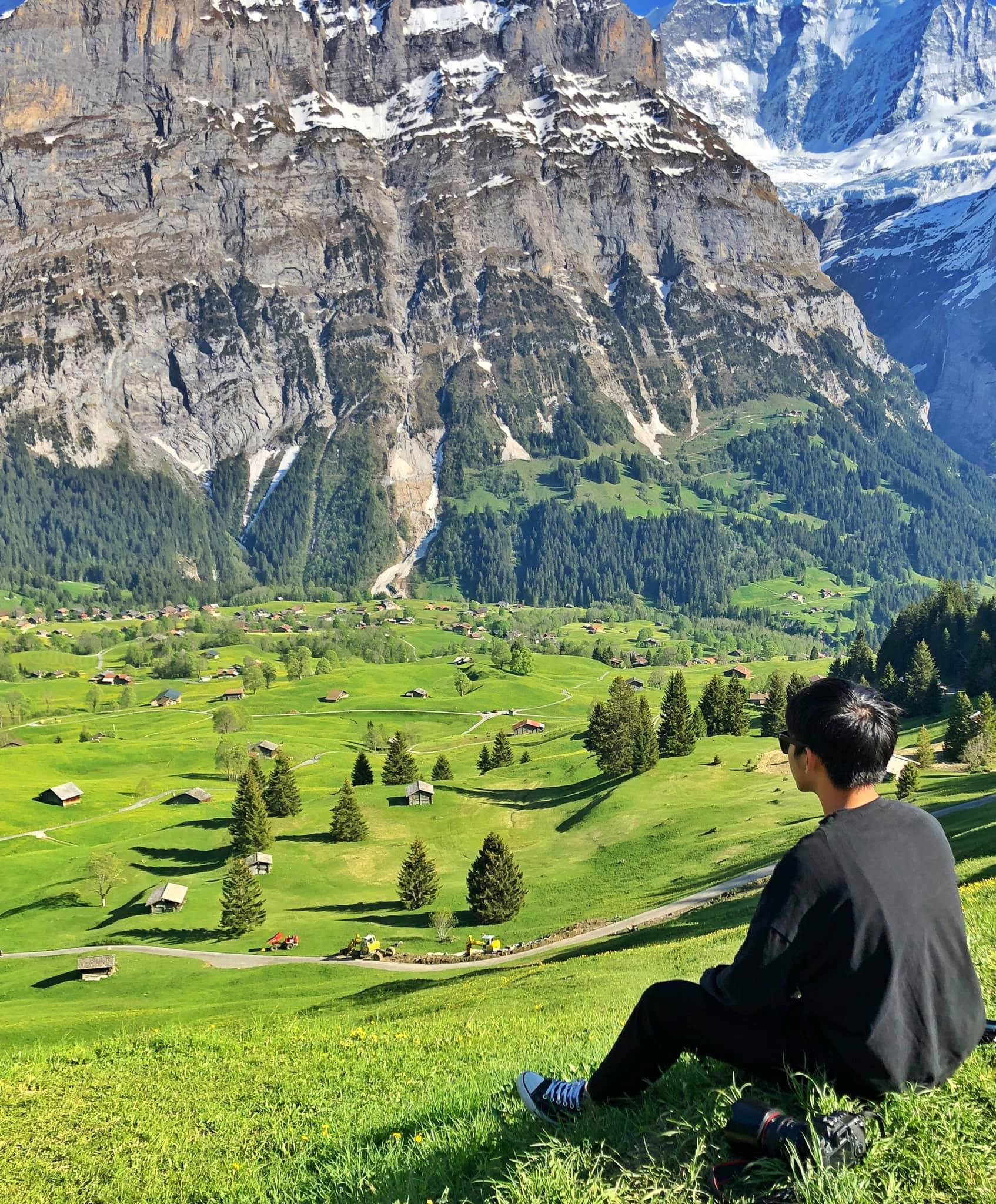 |
 |
Since he was a child, Quoc had a dream of traveling all over the world. By the time he became a student, he had clearly defined what he needed to do to achieve that dream.
After graduating from university, Quoc became a programmer for one of the leading corporations in this field in Vietnam. He did not want to reveal his exact income at that time, but it could be up to hundreds of millions of VND/month. He threw himself into work like crazy, with all the enthusiasm of youth.
Not only working at the company, but he also took on outside jobs and freelanced... At times, he found himself doing five jobs at the same time. "There were one or two times I fainted because of overwork."
Quoc said he does not encourage working recklessly. Health is still the most important thing to him, but "if you do it for a short time, it is acceptable."
"Everyone has 24 hours. If you don't try, how can you stand out from others? My point of view is that there is no shortcut to the destination. No matter what job you are doing, you should try to become good at it.”
Many people think that without a specific plan for his journey, Quoc must be a spontaneous person. But the reality is completely opposite.
“I am a programmer, so I have a very clear plan for my life. I am also realistic enough to understand that without money, I cannot travel.”
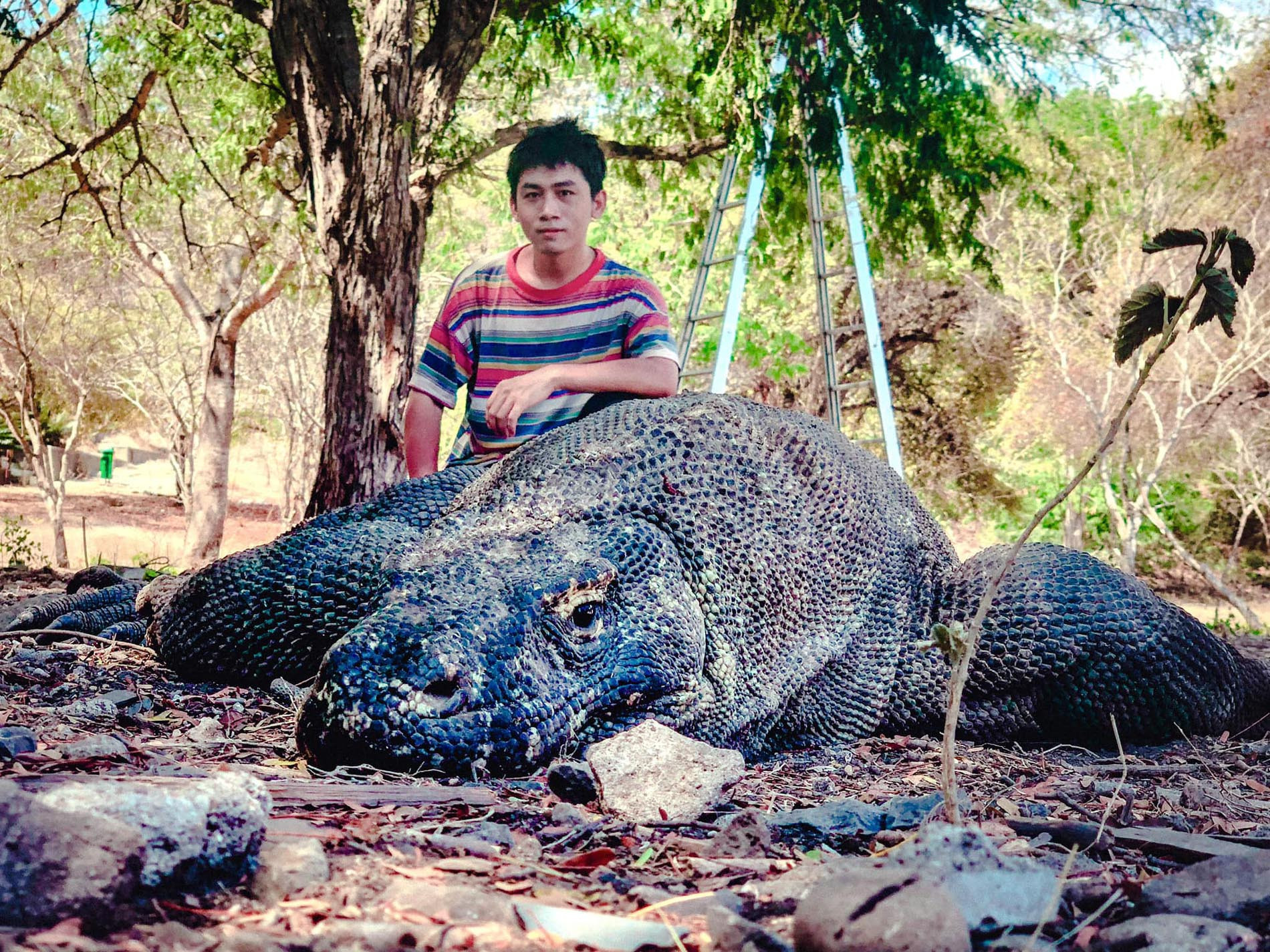
To ensure good health and not waste time, Quoc does not drink alcohol, beer, or even coffee. “A little is fine, but I am a perfectionist.” He also does not spend time on entertainment programs and hobbies like many young people today. “I like it, but I have to be responsible for myself. I have to determine what knowledge to absorb into my head… When I go out, I am spontaneous, but when I work or have big plans in my life, I always have a very clear vision.”
Currently, Quoc has temporarily quit his online job to spend time traveling and writing a book – a book that tells the story of his journey around the world. He said very confidently: “By the time I have visited all the countries, I will probably be in my twilight years.”
Quoc wants that when he has achieved his life goals, he will return to his hometown to live, teach English to children in the neighborhood, and occasionally travel.
“Right now, my parents are urging me to get married. But my girlfriend or wife will definitely have to be someone who loves to travel like me. We will travel around the world together. I don't think that getting married will be the end of all the beautiful plans in my life."


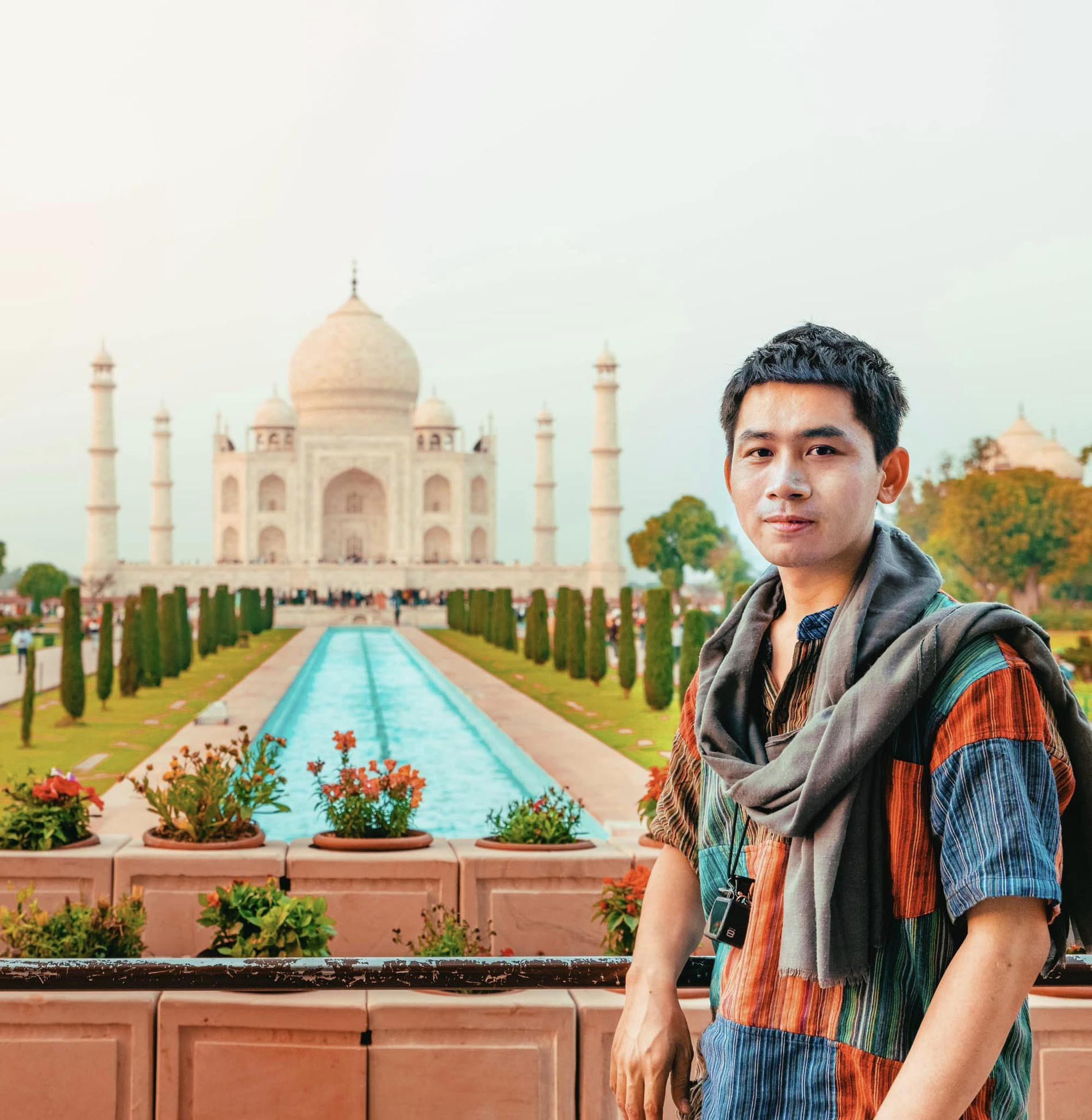
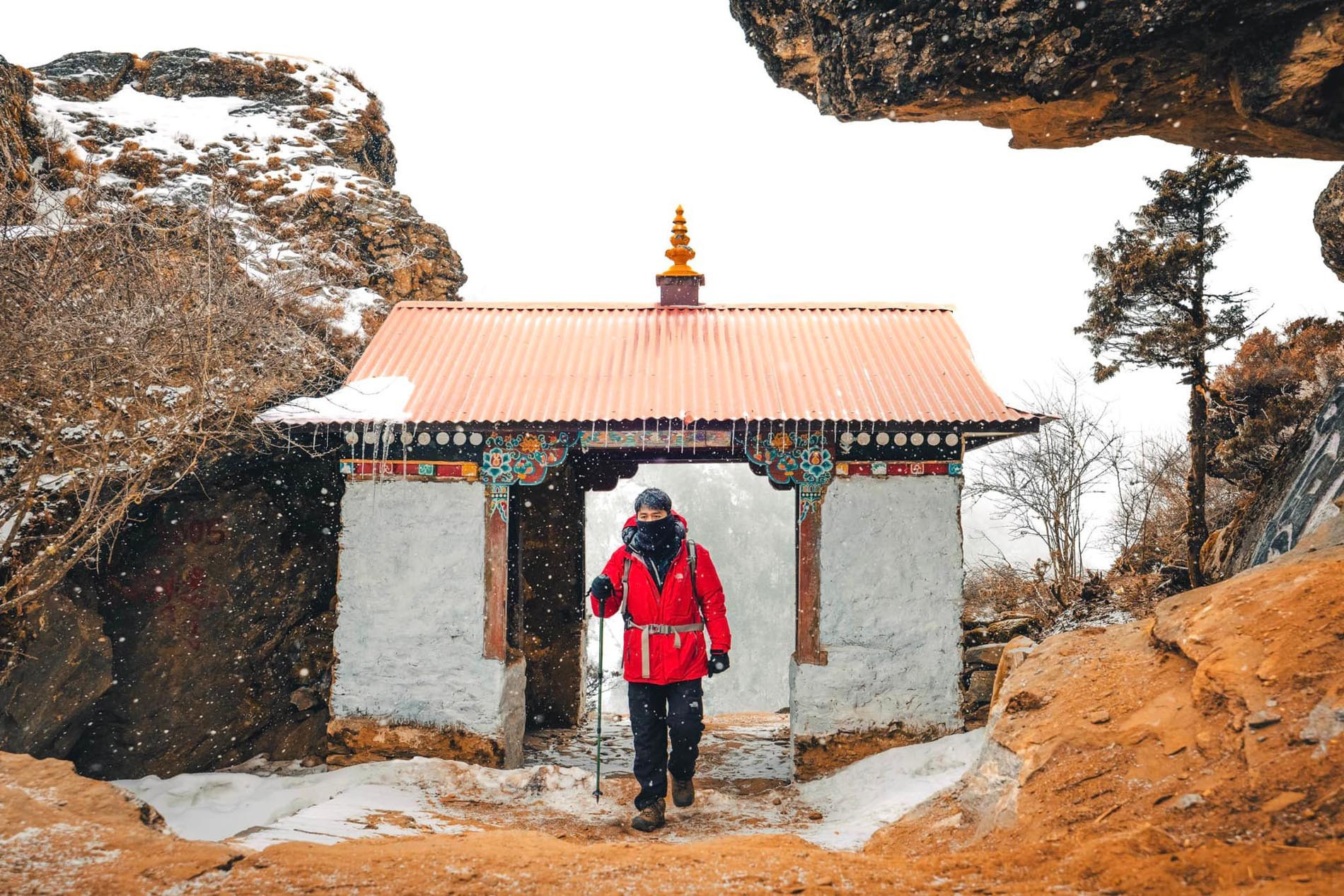


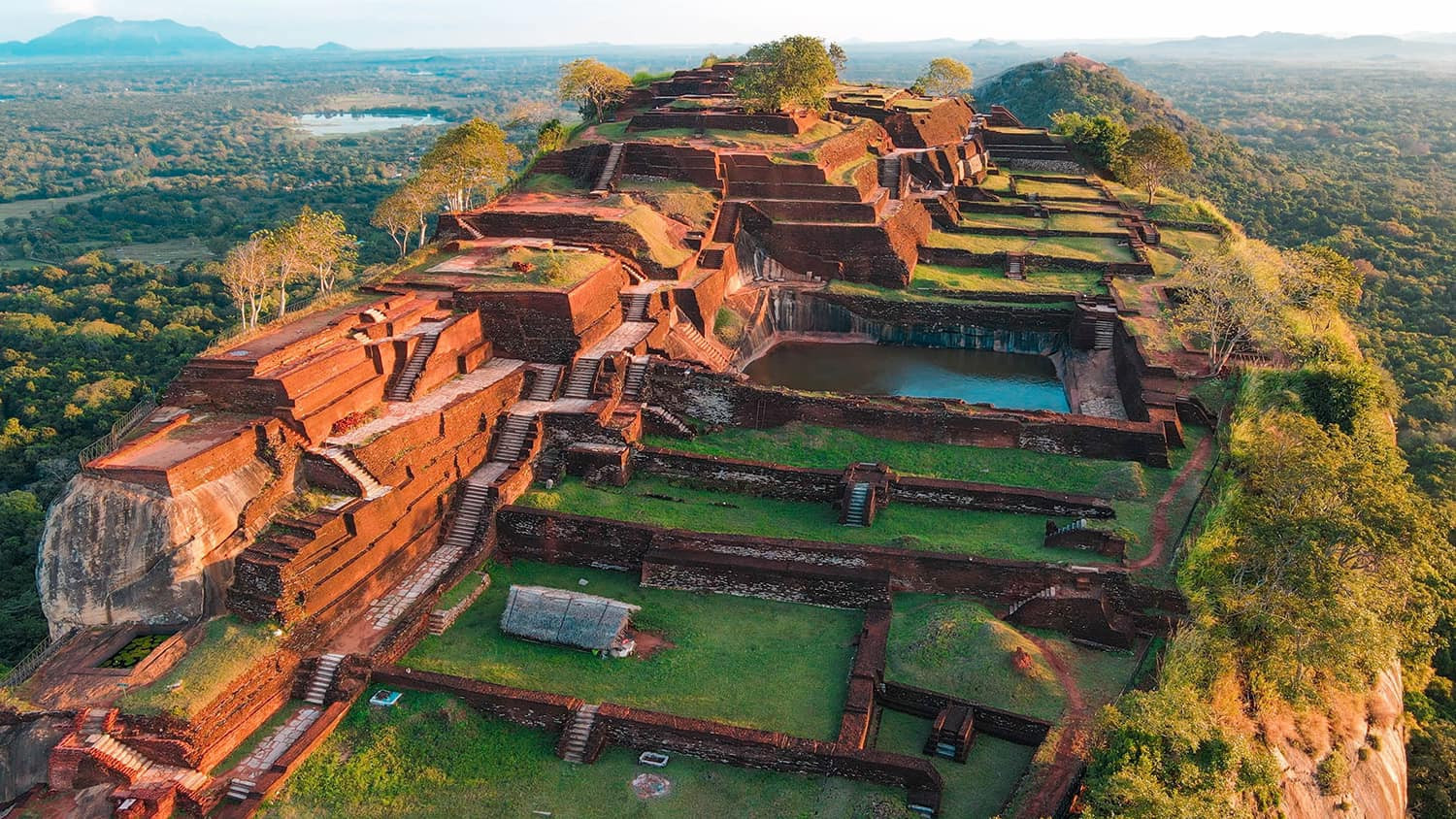
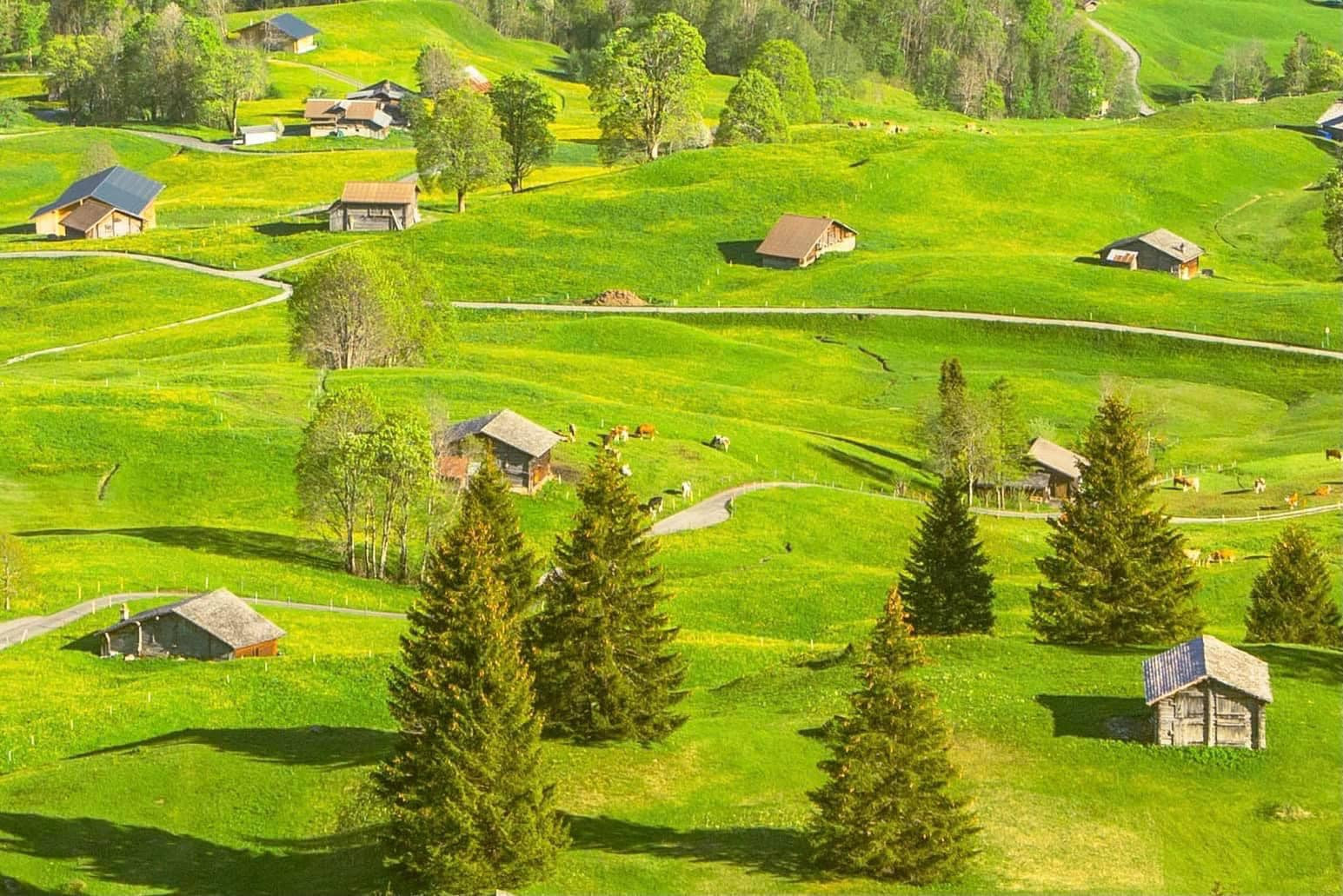


Photos provided by the character
Nguyen Thao